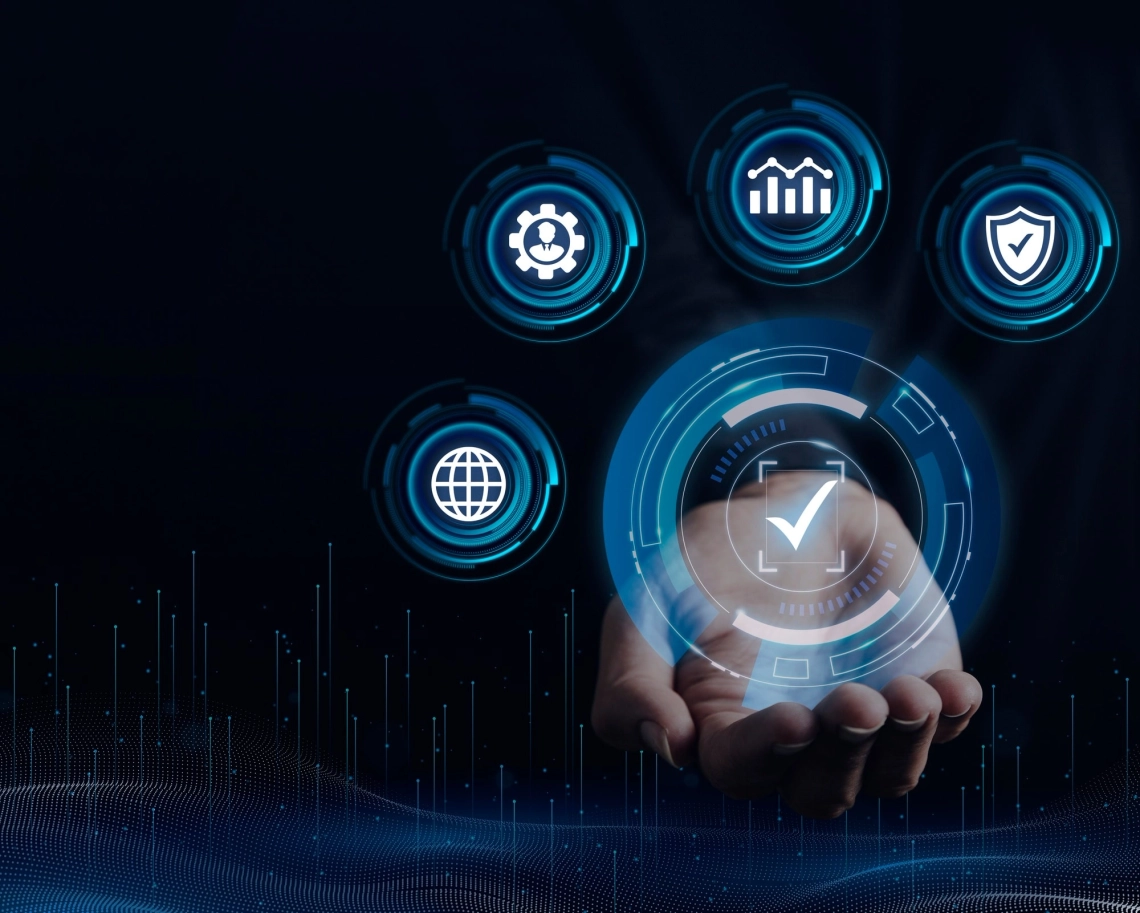Strengthening National…
- Home
- Computer Security
- The Cybersecurity…
Introduction
In an age where more frequent and sophisticated cyber-attacks are the norm, the Cybersecurity Act stands as a basic legislative safeguard, protecting highly critical systems and digital infrastructures from evolving threats. As cybercrimes surge in scale and impact, this Act is not simply a set of regulations-but a global imperative that introduced cyber security laws. Whether for businesses, governments, emergency services provider, or individuals, it makes available a much-needed defense system, ensuring that sensitive information is safe, and operations remain uninterrupted.
The Cyber Security Agency of Singapore prioritizes these measures, particularly in the energy, health, and banking sectors, which might suffer huge damage. Changes made recently under the Act suggest an even more significant part of the country’s security. As a result, this role will undoubtedly become more important than any other if it wishes to lead, given that organizations’ compliance pressures continue to climb.
What is the Cybersecurity Act?
The Cybersecurity Act is a comprehensive law aimed at enhancing the security of digital systems, networks, and critical infrastructure. It establishes clear guidelines for cybersecurity practices, incident reporting, and accountability across various sectors.
Key Objectives of the Cybersecurity Act
Enhancing protection for critical information infrastructures (CII)
It protects those vital industries relating to energy, healthcare, finance, and transportation, crucial for running society smoothly but not a requirement by law, which in return ensures that normal daily digital services will continue working with undisturbed functions while not allowing cyber disturbances to get into these fundamental systems to ensure national security.
Strengthening regulations for cybersecurity practices
In an increasingly digital world, setting standards as well as protocols for their clear execution isn’t just a best practice; it’s really imperative in mitigating continuously changing cyber risks. Resilient infrastructures are better ensured through strengthened regulations, one capable of withstanding and recovering after any threat.
Promoting international cooperation in tackling cyber threats
Because cyberthreats know no boundaries, neither should our response. To outperform hackers, exchange expertise, and coordinate quick and efficient cyber security measures across countries to address global cyber threats head-on, international cooperation must be increased.
Who Does the Cybersecurity Act Apply To?
The Act applies to various stakeholders, including:
Governments: Responsible for national cybersecurity strategies and enforcing compliance.
Corporations: Especially in critical sectors like finance, healthcare, transportation, and energy.
IT Service Providers: Required to comply with cybersecurity standards and practices.
Individual Users: Encouraged to adopt secure practices to protect personal data.
Major Provisions of the Cybersecurity Act
Critical Information Infrastructure (CII)
Systems and resources that are essential to economic stability, public health, or national security are referred to as Critical Information Infrastructure (CII). This would cover vital industries including banking institutions, healthcare facilities, telecommunications networks, and electricity grids.
To safeguard these essential services, organizations or a third party’s computer system is tasked with managing CII must implement robust cybersecurity. To maintain the continuation of their operations, they must also periodically evaluate and reduce cyber risks.
Cybersecurity Standards and Certification
In an effort to resist cyber attacks, businesses should be firm in the cyber security standards set by regulation agencies. For example, the European Union has ENISA as a cybersecurity agency; it forms a framework which provides guidelines for cybersecurity certification. Thus, goods and services will have high aspects of security and reliability due to enhanced trust in systems digital.
Incident Reporting and Management
Organizations are required to report significant cyber incidents without delay. Such a requirement ensures that threats in the cyber world are mitigated quickly and effectively. Incident management processes include assessing the impact of the incident, coordinating with the relevant bodies, and mitigation of the risks. Such a response helps limit damage and facilitates swift recovery.
Penalties and Enforcement
Businesses that violate the Cybersecurity Act risk harsh consequences like fines, penalties, or even legal action. Regulatory organizations will keep an eye on how the Act is being enforced on computer system located wholly or partially in Singapore, including Singapore’s Cyber Security Agency (CSA). The purpose of the sanctions is to make sure that businesses prioritize cybersecurity and follow the regulations.
Recent Updates and Amendments
In 2024, Singapore’s Cybersecurity Act was amended to strengthen the protection of Critical Information Infrastructure (CII). Key updates include:
Expanded CII Definition: Now includes virtual computer systems, reflecting technological shifts.
Third-Party Providers: Organizations must ensure their third-party vendors meet cybersecurity standards.
Broadened Incident Reporting: CII owners are required to report a wider range of incidents, including those affecting their suppliers (The Straits Times).
Businesses must adapt to evolving regulations by implementing stronger cybersecurity frameworks, increasing investments in cybersecurity tools, and ensuring regular compliance checks.
CyberSense Solutions can help businesses adapt seamlessly by offering tailored cybersecurity solutions that ensure compliance and resilience against cyber threats.
Why is the Cybersecurity Act Important?
Rising Cyber Threats
In addition to increasing in frequency, cyberattacks have also become more complex, with disastrous results for people and companies everywhere. The stakes have never been higher due to widespread data breaches and targeted ransomware.
Economic Impact
Businesses suffer enormous financial losses and serious harm to their reputations as a result of these attacks. They might be pushed to the limit by the expense of missed time, legal bills, and other recovery attempts, which makes proactive cybersecurity more important than ever.
Mitigating Risks
The Cybersecurity Act will lay the groundwork for strengthening defenses against these persistent attacks and minimizing vulnerabilities. By putting strong data security measures in place to stop interruptions, it will assist companies in staying one step ahead of these thieves.
Benefits
Enhanced Trust: Consumers and partners alike gain confidence in your digital operations.
Improved Data Protection: Sensitive information stays secure, preserving privacy and compliance.
Greater Resilience: With strong cybersecurity, your organization is better equipped to bounce back from potential attacks.
CyberSense Solutions offers round-the-clock monitoring, advanced threat detection, and swift incident response to ensure your business remains secure in an increasingly volatile digital landscape. Stay protected, no matter what.
Challenges in Implementing the Cybersecurity Act
Cost and Resource Requirements: Compliance frequently entails major investment in technology, experienced human resources, and frequent assessment. Small businesses can barely cope with the expenses that meet the standards. Furthermore, recent amendments also raised the requirements for additional protections on Critical Information Infrastructure.
Technical Barriers: Most organizations do not have the skills and resources to effectively comply. Small businesses, in particular, may not be able to implement the required risk assessments and incident response plans, especially with evolving standards such as ENISA’s stringent cybersecurity certification.
Balancing Privacy and Security: It is often challenging to find the right balance between user privacy and system security. Recent amendments to the Cybersecurity Act require greater protection and mandate detailed incident reporting, raising privacy concerns for sensitive data.
With growing cyber threats, the Cybersecurity Act becomes an absolute necessity to implement for businesses of every size. The intricacies of compliance can be highly overwhelming but raises only temporary cyber security concern by linking up with cybersecurity professionals, you ensure that your business doesn’t just meet the regulation but also remains strong enough against the changing nature of these threats.
How Businesses Can Stay Compliant

Practical Steps to Ensure Compliance:
Conduct a Cybersecurity Audit
Identify vulnerabilities and prioritize areas for improvement. Regular audits help you stay ahead of potential threats.Implement Risk Management Frameworks
Adopt industry standards like ISO 27001 or NIST to create a comprehensive risk management strategy.Regular Employee Training
Educate your staff on best practices, phishing prevention, and the latest cybersecurity threats. A well-trained team is your first line of defense.Adopt Cybersecurity Tools and Services
Invest in firewalls, intrusion detection systems, and endpoint protection to continuously monitor and protect your assets.
To keep you secure and in line with change, CyberSense Solutions offers thorough guidance, risk monitoring, and compliance management. Our team of seasoned experts guides you through the maze of complexity that cybersecurity problems bring, allowing you to concentrate on what really matters—your company.
Global Perspectives
Cybersecurity Regulations Around the World
Singapore: The Singapore Cybersecurity Act has focused on the protection of Critical Information Infrastructure (CII), and organizations are expected to implement strong risk management practices and report incidents immediately. The recent amendments have increased the scope of these requirements, making compliance even more stringent.
European Union: By emphasizing cybersecurity certifications and harmonizing member state frameworks to create a cohesive approach to foundational digital infrastructure and security, the EU Cybersecurity Act enhances ENISA’s function.
United States: Different sectors have different cybersecurity regulations, but through cyber security laws such as HIPAA for healthcare and FISMA for federal systems, the U.S. guarantees that all critical sectors will be subjected to very stringent standards in cybersecurity.
While every region has its specific requirements for regulation, the fundamental principle is the same: businesses must protect data and systems and ensure a coordinated global effort against cyber threats.
Conclusion
Cyber threats have been on the rise and in sophistication. Hence, following the Cybersecurity Act is no longer a matter of choice but of extreme need for all business companies, regardless of their sizes. The way forward in becoming fully compliant can seem so complicated, but collaborating with cybersecurity experts makes this road smoother and safer for the business entity.
Cybersecurity experts may have the capacity to allow one to implement robust systems. They can conduct high-probability risk assessment practices and keep ahead of current and emerging threats for maintaining compliance with the very best of current regulations, protecting your data, reputation, and future.
Frequently Asked Questions (FAQs)
1. Who enforces the Cybersecurity Act?
Compliance is enforced by regulatory organizations like the Cyber Security Agency (CSA) in Singapore together with entities of special cyber security interest, ENISA in the EU, and sector-specific agencies in the US.
2. What happens if a business fails to comply?
Failure to comply comes with harsh penalties, even fines, sanctions, and possible litigation. The level of risk for noncompliance is too high, but you don’t have to be like that because by consulting an expert cybersecurity professional, one can avoid costly mistakes to mitigate the risk of noncompliance before it becomes the problem.
3. Is the Cybersecurity Act mandatory?
Yes, by virtue of the Cybersecurity Act, a business operating a CII or managing sensitive data must have partnered with a cybersecurity expert for the same purpose. Partnering not only helps comply but is proactive in protecting the business from the rising cyber threat.
About Us
Contact Info
- [email protected]
- Singapore: 78 Shenton Way, #15-01/01B AIG Building Singapore 079120
- Philippines: 3F Salcedo ONE CENTER, 170 Salcedo St., Legaspi Village San Lerenzo Makati City 1223
Cybersense Solutions Pte Ltd copyright © 2025. All Rights Reserved.
